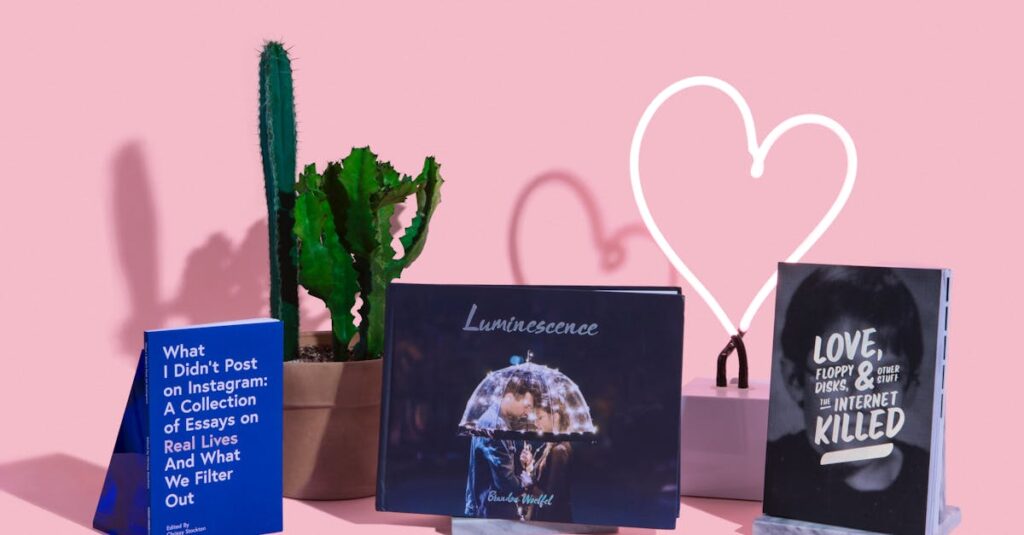As a writing instructor and published author, I’ve seen firsthand how the right creative writing program can transform aspiring writers into accomplished storytellers. Whether you’re dreaming of penning the next bestseller or crafting compelling poetry, choosing the perfect program is crucial for developing your craft.
I’ll guide you through the most prestigious creative writing programs that consistently produce successful authors and poets. These programs offer more than just classroom instruction – they provide mentorship opportunities, workshop environments, and valuable networking connections that can jumpstart your writing career. From the ivy-covered walls of Iowa’s Writers’ Workshop to innovative online MFA programs, each institution has unique strengths that cater to different writing goals and styles.
Best Creative Writing Programs
- Top creative writing programs are distinguished by award-winning faculty, intensive workshops, and strong publishing components that provide practical industry experience.
- The Iowa Writers’ Workshop, Columbia University, and NYU lead the traditional MFA rankings, offering substantial funding ($20,000-$30,000 annually) and small workshop sizes (6-12 students).
- Online and low-residency programs like University of Denver and Bay Path University provide flexible alternatives with similar academic rigor and professional development opportunities.
- Strong writing programs offer career development through teaching assistantships, editorial positions, and networking connections with publishing industry professionals.
- When choosing a program, consider factors like funding packages, workshop sizes, faculty expertise, and program structure (traditional, low-residency, or online) to align with your goals.
What Makes a Top Creative Writing Program
Top creative writing programs combine essential elements that foster literary excellence through structured guidance and practical opportunities. Here’s what distinguishes exceptional programs from standard offerings.
Faculty Expertise and Mentorship
Faculty expertise shapes the foundation of elite creative writing programs through direct interaction with accomplished authors. Literary professionals with multiple published works guide students through personalized feedback sessions. I’ve observed that programs with award-winning faculty, such as Pulitzer Prize recipients or National Book Award winners, provide invaluable insights into craft development. These mentors maintain active publishing careers while offering:
- Individual manuscript consultations with detailed editorial feedback
- Genre-specific workshops focused on technical skill development
- Career guidance based on current industry experience
- Networking connections with literary agents publishers
- Literary journal management positions
- Editorial internships with established publishing houses
- Chapbook production experience
- Digital publishing platforms access
- Quarterly student publications featuring original work
| Publishing Component | Student Benefit |
|---|---|
| Journal Management | Editorial decision-making skills |
| Press Internships | Industry workflow experience |
| Digital Platforms | Contemporary publishing tools expertise |
| Student Publications | Portfolio development opportunities |
Top MFA Programs in Creative Writing
MFA programs in creative writing shape literary careers through intensive workshops, mentorship opportunities and diverse course offerings. I’ve identified these programs based on faculty credentials, student publications and program resources.
Iowa Writers’ Workshop
The Iowa Writers’ Workshop at the University of Iowa stands as America’s first creative writing MFA program, established in 1936. The program boasts 17 Pulitzer Prize-winning alumni including Philip Roth, Jane Smiley and John Irving. Students receive $20,000+ annual stipends for teaching assignments while engaging in intimate 12-person workshops led by acclaimed authors. The program’s two-year curriculum focuses exclusively on fiction and poetry, with 50% of coursework in writing workshops and 50% in literature seminars.
Columbia University School of the Arts
Columbia’s MFA Writing Program combines rigorous craft workshops with literary seminars in New York City’s dynamic publishing hub. The program offers concentrations in fiction, poetry, nonfiction and literary translation, with 6-8 students per workshop. Notable faculty includes Pulitzer winners Richard Ford and Jhumpa Lahiri. Students gain editorial experience through Columbia: A Journal of Literature and Art plus internship opportunities at major publishing houses like Penguin Random House and Simon & Schuster.
NYU Creative Writing Program

NYU’s Creative Writing Program emphasizes craft development through small workshops capped at 12 students and one-on-one mentoring. The program offers full funding through Starworks Teaching Fellowships valued at $30,000 annually. Students study in Greenwich Village while accessing New York’s literary scene through partnerships with 92nd Street Y, PEN America and Brooklyn Book Festival. Distinguished faculty includes National Book Award winners Terrance Hayes and Zadie Smith.
| Program | Annual Funding | Workshop Size | Notable Alumni |
|---|---|---|---|
| Iowa Writers’ Workshop | $20,000+ | 12 students | 17 Pulitzer winners |
| Columbia | Varies | 6-8 students | 4 Pulitzer winners |
| NYU | $30,000 | 12 students | 6 National Book Awards |
Best Online Creative Writing Programs
Online creative writing programs offer flexible learning opportunities through virtual workshops, peer reviews and one-on-one mentorship with experienced faculty. These programs combine academic rigor with digital collaboration tools to create an immersive writing experience.
University of Denver
The University of Denver’s online creative writing program features a low-residency MFA format that combines distance learning with intensive 10-day residencies. Students complete 48 credit hours through online workshops focused on fiction, poetry or creative nonfiction while maintaining regular virtual contact with faculty mentors. The program provides access to the Denver Publishing Institute and offers teaching assistantships that include full tuition remission plus a $12,000 annual stipend.
Bay Path University
Bay Path University’s online MFA in Creative Nonfiction emphasizes digital storytelling through a 39-credit curriculum delivered entirely online. Students participate in 8-week workshops centered on memoir writing, narrative journalism and multimedia storytelling. The program incorporates publishing courses taught by industry professionals where students learn about digital platforms, content strategy and building author platforms. Bay Path’s partnership with Penguin Random House provides exclusive internship opportunities and mentorship from acquiring editors.
| Program Feature | University of Denver | Bay Path University |
|---|---|---|
| Credit Hours | 48 | 39 |
| Format | Low-residency | Fully online |
| Specializations | Fiction, Poetry, Creative Nonfiction | Creative Nonfiction |
| Teaching Stipend | $12,000/year | Not available |
| Industry Partners | Denver Publishing Institute | Penguin Random House |
Key Benefits of Creative Writing Programs
Creative writing programs offer transformative advantages that extend beyond basic writing instruction. These structured educational environments provide strategic benefits that enhance both craft development and professional growth.
Writing Community and Networking
Writing communities in creative programs create lasting professional connections through peer workshops, faculty mentorship sessions and literary events. Students engage with visiting authors during craft talks, participate in writing groups with 8-12 peers and receive feedback from established writers during manuscript consultations. Program alumni networks include editors at major publishing houses, literary agents and award-winning authors who regularly return as guest speakers.
Career Development Support
Career development resources equip students with essential tools for professional advancement in the writing industry. Programs offer dedicated publishing seminars taught by industry professionals, editorial internships at literary magazines and networking events with visiting agents. Students gain hands-on experience through:
- Teaching assistantships that provide classroom instruction experience
- Editorial positions on program-affiliated literary journals
- Grant writing workshops for securing arts funding
- Book proposal development sessions with publishing experts
- Literary festival organization opportunities
These career-focused components connect directly to post-graduation employment, with many programs reporting 75% of graduates working in writing-related fields within one year. The combination of practical training and industry connections creates clear pathways for career advancement.
How to Choose the Right Program
Selecting a creative writing program demands careful evaluation of specific criteria that align with personal goals and professional aspirations. Here’s a detailed analysis of key factors to consider.
Funding and Financial Aid Options

Creative writing programs offer diverse funding packages that impact the financial investment in education. Top-tier programs like Iowa Writers’ Workshop provide full tuition coverage plus $20,000 annual stipends through teaching assistantships. Available funding options include:
- Merit-based scholarships ranging from $5,000 to full tuition
- Teaching fellowships with stipends between $12,000-$25,000 annually
- Research assistantships covering 50-100% of tuition costs
- Federal loans with income-based repayment options
- Department-specific grants for conference travel or research
- Workshop-intensive programs: 6-12 students per class
- Genre-specific tracks: Fiction, Poetry, Creative Nonfiction
- Cross-genre options allowing exploration of multiple forms
- Thesis requirements ranging from 50-200 pages
- Course distribution:
- 60% workshops
- 25% literature seminars
- 15% craft classes
| Program Component | Traditional MFA | Low-Residency | Online |
|---|---|---|---|
| Duration | 2-3 years | 2-3 years | 1-2 years |
| Credits Required | 48-60 | 45-48 | 36-48 |
| Workshop Size | 8-12 students | 4-8 students | 6-10 students |
| Faculty Contact | Weekly | Monthly | Bi-weekly |
A Pivotal Step in Any Writer’s Journey
Choosing the right creative writing program is a pivotal step in any writer’s journey. I’ve seen firsthand how these programs can transform talented writers into accomplished authors through expert mentorship and networking opportunities.
Whether you prefer the prestige of Iowa’s Writers’ Workshop or the flexibility of online programs I believe there’s a perfect fit for every aspiring writer. The key is to carefully evaluate your goals funding options and preferred learning style.
I encourage you to take your time exploring these programs. Remember that the right choice will not only enhance your craft but also open doors to a fulfilling career in the literary world. Your next creative masterpiece awaits!



